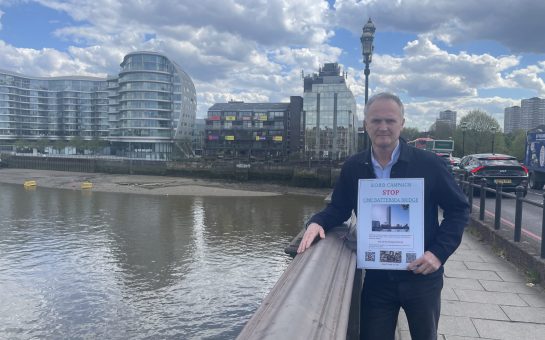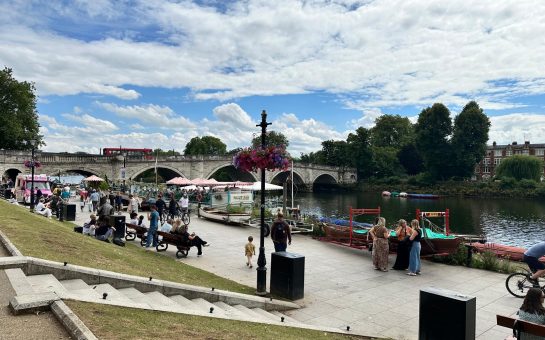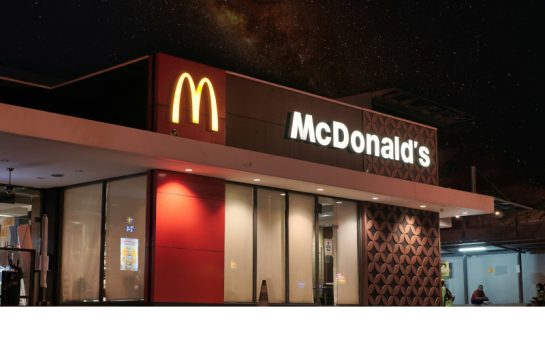Are our drinking habits rooted in the availability of cheap supermarket drinks, or is the British thirst the result of more fundamental stresses?

“I stopped drinking overnight. But that’s not something you should really do without advice, as you can go into fits and do yourself damage. I was shaking, sweating, scared to get on buses and frightened of everything. Your whole body and mind is changing. It’s like having your brain shaken.”
Meet George Budge, a recovering alcoholic who received treatment in Richmond-upon-Thames, and one of thousands of Londoners who are aware they drink to excess.
Both alcohol abuse and misuse are complex issues. Are our drinking habits rooted in the availability of cheap supermarket drinks, or is the British thirst the result of more fundamental stresses and anxieties?
In Wandsworth one in five adults binge drinks and in 2009 over 3,300 people were admitted to hospital with an alcohol related problem.
Average NHS spending on treatments in the area totalled £9,109,000, the highest in southwest London. This compares with the smaller, though still costly, £5,001,000 spent in Kingston-upon-Thames.
In 2008/09, it is estimated that there were 111,000 alcohol related hospital admissions in London as a whole at an estimated cost of £264 million, around £34 for every London resident.
The government’s minimum pricing strategy would mean a 14% bottle of wine could be sold no cheaper than £4.20, and a £2.99 bottle of red, containing 9.4 units, would rise to £3.76.
The government estimates 50,000 fewer crimes would be committed each year and 900 alcohol-related deaths per year could be prevented by the end of the decade if curbs on binge drinking are implemented.
“The crime and violence it causes drains resources in our hospitals, generates mayhem on our streets and spreads fear in our communities,” writes David Cameron in the strategy document.
“My message is simple. We can’t go on like this. We have to tackle the scourge of violence caused by binge drinking. And we have to do it now.”
Accurate words, perhaps. But can the interventions outlined in the strategy be put into practice? More powers to stop serving alcohol to people who are already drunk, restrictions on opening and closing times, and controls on the density of licensed premises are unlikely to be popular with the industry. Neither would a late night levy to support policing.
Mr Cameron calls the strategy “a real effort to get to grips with the root cause of the problem”.
But by chastising the drinks industry for so affordably inebriating us, has he identified the genuine root cause?
A spokesman for the supermarket chain, Sainsbury’s, said: “We do not support minimum pricing as it will unfairly penalise the vast majority of customers who buy alcohol as part of their grocery shop and drink responsibly.
“It is disappointing that the government has chosen this route and we continue to believe there is no simple link between price, consumption and alcohol misuse.”
But what do not-for-profit groups make of the strategy?
Chris Sorek, chief executive of Drinkaware, says the alcohol education charity fully endorses all measures to tackle alcohol abuse, but that the new ‘headline-grabbing’ strategy did not address the problem of Britain’s ‘hidden binge drinkers’ – working professionals who regularly drink more than recommended guidelines at home.
He said: “We would like to see more emphasis on tackling the habitual drinking behaviour of UK adults which, if not addressed, will have serious implication for the health of the nation.”
Professor Richard Wilkinson, co-author of The Spirit Level, Why Equality is Better for Everyone, and a co-founder of the Equality Trust, believes alcohol abuse and misuse is the result of more fundamental social anxieties.
He said: “Although I’m sure its not the root cause, I also think price has an affect on consumption. We know it’s both true with alcohol and tobacco.
“But why people take drink or drugs is to do with levels of anxiety, which come from issues that surround social comparison. With more inequality there’s more worry about how you’re doing compared to others, fears of inadequacy and so on.
“You can find it a bit of an ordeal. You need a drink to meet other people, to relax in that company. And all those sorts of things are made worse by greater inequality. We’re quite neurotic about social comparisons.”
It can be argued that minimum pricing and tough regulation fail to address the “root causes” of alcohol abuse and misuse, and it is clear that financial inducements are only half the battle and are short-term in scope.
Advocates of greater regulation may sound like spoilsports, but our society will have more than a bad hangover awaiting if profits and government quick fixes blur our vision as to effective reform; a generous measure of social capital and greater economic parity.
Follow us on Twitter @SW_Londoner




